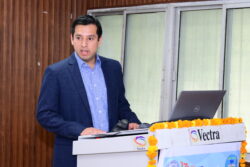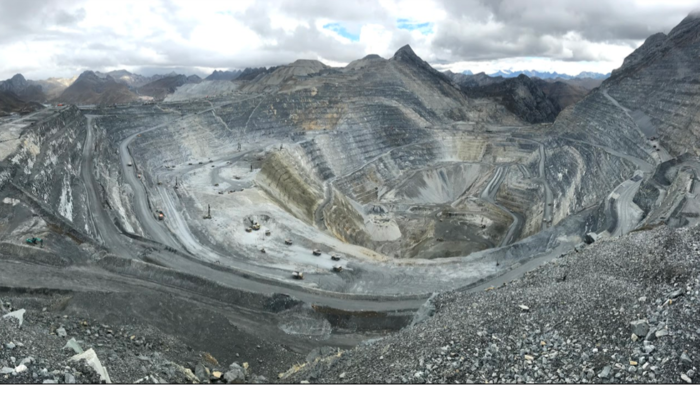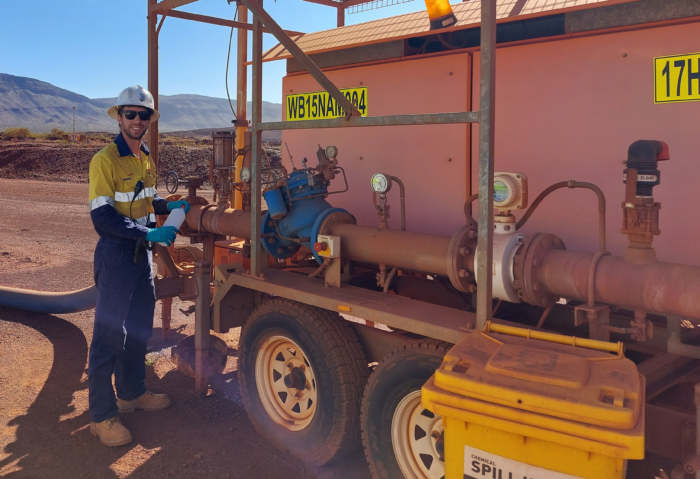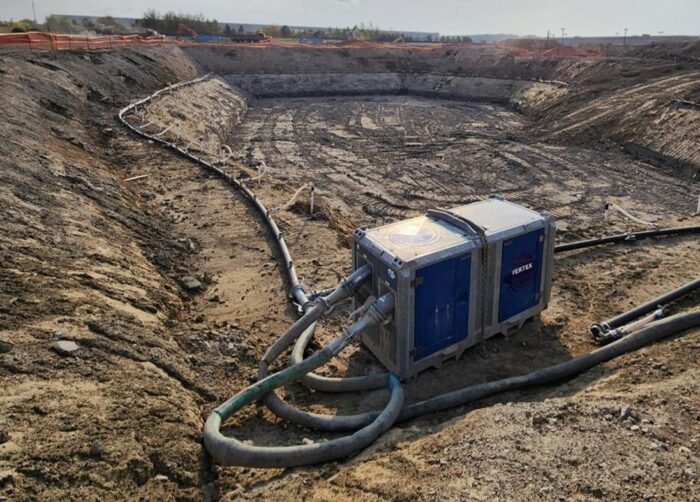As part of The Dewatering Institute ‘s commitment towards knowledge sharing, TDI is developing a series of monthly interviews of industry leaders, and professionals from different parts of the world. One of the month’s editions features Dr. Carlos Andres Rivera Villarreyes Global Product Specialist from DHI.
Carlos is a business developer and responsible to meet annual global revenue of DHI’s groundwater software FEFLOW. Alone with his role of Global Product Specialist at DHI, he is a senior groundwater and hydrogeological advisor. His focus is customer satisfaction based on the delivery of technical solutions in applications ranging from water in mining, nuclear waste decommissioning, emerging contaminants, groundwater resources, geothermal energy and among others.
Carlos have proven leadership of sales and technical teams involving multicultural and age diversity. He have mentored and trained junior engineers within his team to expand their abilities for understanding modelling and hydrogeological processes. Carlos is a respected professional in capacity building (trainer) with a record of more than 50 courses given in groundwater modelling around the world for consultants and decision-makers.
As the FEFLOW’s Product Owner and Product Manager, he leads a team of software developers and engineers to deliver cutting-edge solutions in groundwater modelling.

Can you tell us more about your work history and how you got into the dewatering industry?
I have been always fascinated with water and all challenges associated to it. Probably, the reason of this fascination is dated back to the first years of my life in Peru. My hometown is located at the northern part of the Peruvian dessert with a semi-arid climate. Water scarcity was a general issue. But at the same time, there were years, where we have also faced El Niño-Southern Oscillation (ENSO) event, which brought significant floodings. At some point, I have decided to study civil engineering and do several specializations in water resources and later specifically in hydrogeology during my Master and Ph.D. studies.
I have been working in the field of groundwater modelling and hydrogeology for more than 10 years now and love it every day even more. Currently, I work at DHI as the responsible for the global business development of our key product in groundwater modelling named FEFLOW. For over 40 years, groundwater modellers have relied on FEFLOW to simulate flow, mass and heat transport processes in the subsurface. So, it makes me proud to represent DHI’s here.
In DHI, every day we are confronted with tough challenges in a water environment – be it a river, a reservoir, an ocean, a coastline, within a city or a factory. Our knowledge of water environments is second-to-none. It represents 50 years of dedicated research and real-life experience from more than 140 countries. We strive to make this knowledge globally accessible to clients and partners by channeling it through our local teams and unique software. Especially, in the groundwater sector, my daily work means to meet with industry partners from mining, environmental, geothermal and civil infrastructure sectors.
All of them looking for an answer of the “best practice to deal with groundwater”.
In your opinion, what has been the biggest development in the industry through the years?
Specifically, within my field, groundwater predictions based on numerical calculations, the integration of real-time monitoring data in decision support systems (DSS) have made a significant milestone. Collecting data of groundwater wells, dewatering systems or so, it is not anymore, a problem. And even connecting all this information with a DSS has been become easier nowadays.
What are the biggest challenges that you’ve seen in the industry over the past few years, and what do you see as potential challenges in the future?
Although there is out there a lot of data collected by multiple stakeholders, the sharing process is still a big deal. Data is an asset and obviously, has a price label behind. But just let us imagine the great potential we could have if the information (datasets) is shared openly. We will save cost significantly and do not repeat tasks again and again, and rather we can concentrate in locations, which has not been explored so far.
How do you see technology playing part in the industry in the future?
The future depends strongly on digital transformation, and this is not an exception for the water sector. Digital twins and digital assets are currently the major trends for the next years. I come from a sector, where we use numerical calculations to understand (and potentially solve) hydrogeological challenges. Dewatering is obviously not excluded in this task. Real state could benefit to get real-time alarm system in case groundwater level rise and flooded parts of the infrastructure. Mining companies can plan their dewatering strategies much in details if we could optimize well locations and pump rates. For me the question today is Why we cannot have a digital twin to represent the entire dewatering system? What if pumping schemes can be efficiently optimized depending on new datasets? That is what I see our future.
What would you recommend to the new generations coming into this industry and why?
Water was, is and will be an important part of our lives and planet. There are a lot of challenges out there, which require continuous improvements of technology and research.
What aspects of the industry do you think need improving?
If we do talk today about dewatering as a single industry, there are so many aspects involved, from the pump manufacturer, the hydrogeological consultant, device monitoring manufacturer, drilling company, among others. Of course, there is certain interaction between these different players, but it is not much as it should be. Mainly, every one focus strongly on their expertise field. Here TDI plays an important role by bridging all these stakeholders.
Why do you think TDI is important for the industry and how it can help the industry develop?
The main mission of TDI is to focus on the fundamentals of education, knowledge sharing, and best practices. All this is a foundation for todays and tomorrow’s work. I do appreciate strongly that TDI works as a strong bridge between practitioners in all the multiple sectors related to dewatering from pump industry, numerical modelling, monitoring, drilling, among others. Organizations such as TDI allow for the dissemination of information and the advancement of the entire industry.
All this knowledge sharing will support the new professionals coming to the industry and will become milestone to the next level in the dewatering industry. All of this is essential to optimize resources and do not affect much the environment.
What is your life motto?
A good part of my career, I have been involved quite a lot on training young professional. My personal life motto is to share the “little” that we know to the new generations.










